코로나19 이후 세상에서 어떻게 투자해야 할까요? 이것은 모두가 묻는 것입니다. 전염병은 우리 모두를 놀라게 했습니다. 많은 기업이 문을 닫았고 일부는 제한이 해제되기를 기다리고 있고 다른 기업은 이미 파산했습니다.
경제가 위기를 겪고 있고 상황이 변화하고 있습니다. 관광(호텔, 항공사, 유람선), 이벤트 기획 및 미용실과 같은 기타 비필수 비즈니스와 같이 전염병 이전에 번영했던 산업이 매우 큰 타격을 받았으며 그들이 다시 회복할 수 있을지는 말할 것도 없습니다. 전염병 이후 그들의 발은 사라질 것입니다.
현재 대다수의 사람들이 온라인 쇼핑을 하기 때문에 실제 상점과 상업용 부동산도 어려움을 겪고 있습니다. 사무실 공간을 임대하던 회사들은 이제 직원들이 집에서 원격으로 일할 수 있게 되었습니다.
이러한 변경 사항 중 얼마나 많은 것이 일시적이고 어떤 것이 영구적인지 여부는 알 수 없습니다. 불확실성이 너무 커서 시장이 어떻게 발전할지 예측하기가 거의 불가능합니다.
아래에서 Dr Wealth 앱을 확인하십시오.
이것이 바로 우리가 Minuca Elena를 고용하여 45명의 금융 전문가에게 연락하여 다음과 같이 질문한 이유입니다.
그들이 말한 내용을 보려면 계속 읽으십시오.

코로나19 이후 세계에 투자하는 가장 좋은 방법은 펀드로 여러 기업을 살 수 있는 저비용 인덱스 펀드나 ETF(장기 상장지수펀드)를 사는 것입니다. 이는 투자 포트폴리오를 다양화하는 데 도움이 됩니다.
주식 시장에 수동적으로 투자하면 장기적으로 자본 이득과 배당금을 얻을 수 있습니다. 시장 타이밍이 걱정된다면 일정 기간 동안 투자를 분산하고 시장의 고점과 저점에서 매수하는 달러 비용 평균을 시도할 수 있습니다.
이렇게 하면 위험을 줄이는 데 도움이 되며 주식을 사기에 가장 좋은 시기를 찾는 것에 대해 걱정할 필요가 없습니다.

개인 투자는 COVID-19 이후 크게 변하지 않았습니다. 사람들은 지출, 은퇴 시기, 사회 보장 혜택, 세금 계획 등 자신이 통제할 수 있는 영역에 여전히 집중해야 합니다. 개인의 결정은 주식 시장의 기복보다 재정적 성공에 훨씬 더 큰 영향을 미칩니다.
투자 결정과 관련하여 얼마나 많은 위험을 감수하고 주식 시장에 어떻게 반응하는지 제어할 수 있지만 수익은 제어할 수 없습니다. 적절한 수준의 위험으로 시작하고 은행에 충분한 여유 자금이 있다면 주식 시장을 능가하는 것으로 입증된 유일한 일인 재조정을 할 가능성이 더 큽니다!
우리 투자자들은 2019/20 겨울에 주식 시장에서 균형을 재조정하고 있었고 COVID-19 주식 시장 최저점 근처에서 2020년 3월 말에 시장으로 재조정했습니다. 8월 말에 시장이 다시 사상 최고치에 도달했으므로 우리는 시장의 타이밍을 맞추거나 하락할 것이라고 예측하는 것이 아니라 고객이 적절한 수준의 위험을 유지하도록 하기 위해 주식 시장에서 고객의 균형을 다시 조정했습니다.

연준이 이자율을 거의 0에 가깝게 낮출 때 채권은 수익을 거의 내지 않습니다. 그래서 투자자들은 다른 곳을 찾아 주식 시장에 뛰어들고 주가를 끌어올립니다. 예를 들어 주가가 경제 전체에서 멀리 떨어져 있는 것처럼 보이는 이유 중 일부입니다.
투자자들도 부동산에 눈을 돌렸다. 집 가격은 2019년 7월부터 2020년 7월까지 5.5% 상승했으며 CoreLogic에서 제공하는 최신 데이터입니다. 그러나 그 전국 평균은 이야기의 절반에 불과합니다. 소도시, 교외 및 시골 지역의 부동산 가치는 전년 대비 상승한 반면 가장 비싼 도시(예:뉴욕 및 샌프란시스코)의 부동산 가치는 폭락했습니다.
주식과 부동산 가격이 너무 높아서 소득 창출 부동산과 투자자에 대한 단기 구매 재활 대출이라는 두 가지 영역에 더 많은 돈을 투자했습니다. 시장 임대료와 가격을 기반으로 수익을 예측할 수 있기 때문에 전자에 투자합니다. 임대 소득 계산기를 사용하여 문자 그대로 몇 초 만에 현금 흐름 수치를 실행할 수 있습니다.
주택 소유자 모기지론과 달리 집행이 가능하기 때문에 후자에 투자합니다. 대출 기관은 팬데믹 기간 동안 부동산 투자자를 압류할 수 있습니다. 그리고 부동산 가격이 상승하고 가치 대비 대출금 비율이 낮아짐에 따라 이러한 대출은 대부분의 경우보다 수익률이 높더라도 대부분의 경우보다 안전합니다.

저는 항상 광범위하게 분산된 저비용 인덱스 펀드를 사용하여 매수 후 보유 투자자였습니다. 나는 달러 비용 평균화의 이점을 포착하기 위해 정기적으로 투자해야 한다고 믿습니다. 다양한 자산 클래스의 가중치는 항상 투자자의 보유 기간에 따라 결정되어야 합니다(나이가 들수록 더 보수적임).
포스트 코로나 세상에서 나는 여전히 동일한 기본 철학을 믿습니다. 하지만 팬데믹과 같은 블랙스완 사태의 징후에 대해 세심한 주의를 기울이는 것도 이치에 맞다고 생각합니다.
일반적으로 나는 단기 거래를 옹호하지 않지만 매우 부정적인 징후가 보이면 단기 보물과 같은 매우 안전한 자산 클래스로 일시적으로 전환하는 것을 고려하는 것이 합리적입니다.

현재 시장에서 투자하기에 가장 좋은 곳 중 하나는 부동산입니다. 특히 팬데믹으로 큰 영향을 받은 지역이 그렇습니다.
'안전지역'은 바이러스 영향이 덜한 지역에 거주하려는 사람들이 몰려 부동산 매매가 호황을 누리고 있으며, 해당 지역의 부동산 시장이 순식간에 매도자 시장이 됐다.
그러나 바이러스의 영향을 가장 많이 받은 지역은 구매자에게 유리한 부동산 가치를 보게 될 것입니다. 많은 경우 이러한 영역은 팬데믹 이전에 수요가 많았고 팬데믹이 끝나면 다시 수요가 많을 것입니다.

코로나 이후 가장 좋은 투자 방법은 달러 비용 평균입니다. 이 전략을 사용하면 투자 경험을 자동화할 수 있습니다. 매월 할당된 금액을 투자 계정에 투자함으로써 거의 불가능한 시장 "타이밍"을 피할 수 있습니다. 시장이 상승할지 하락할지 100% 확신할 수 있는 사람은 아무도 없습니다. 그렇다면 왜 시도해야 할까요?
달러 비용 평균을 사용하면 기복을 피할 수 있지만 여전히 하락 시장에 투자하고 시장이 사상 최고치에 가까울 때 약간만 투자합니다. 초과 근무, 달러 비용 평균을 통해 앞서 나갈 수 있습니다. 당신은 여전히 투자하고 있기 때문에 시장이 저점에 가까울 때 자본화할 수 있습니다. 현재 시장 환경에 관계없이 DCA는 계속해서 투자합니다.
게다가 이 전략은 전설적인 워렌 버핏이 사용합니다. 따라서 오마하의 신탁처럼 투자하려면 달러 비용 평균으로 시작하십시오. 사용하기 쉽고 강력하고 편리하여 마음의 평화를 제공합니다. 이 전략을 최대한 활용하는 가장 좋은 방법은 2~3개의 낮은 수수료 인덱스 펀드에 투자하는 것입니다. 이를 통해 재무 목표 및 위험 허용 범위에 부합하는 특정 지수에 분산하고 투자할 수 있습니다.
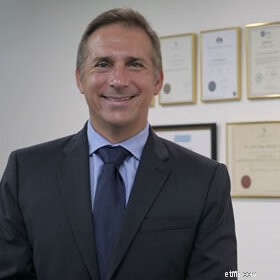
불경기는 "이웃이 직장을 잃는 것이고 우울증은 당신도 직장을 잃는 것"이라고 합니다.
나는 호주 경제가 불황이라고 생각하지 않지만 많은 사람들이 이미 일자리를 잃었습니다. 경제적 숙취가 거의 확실합니다.
다음은 경기 침체에서 살아남기 위한 제 팁입니다.
현재의 사건은 우리의 통제 밖입니다. 이에 대해 우리는 아무 것도 할 수 없지만 우리가 할 수 있는 일에 집중하고 우리가 통제할 수 있는 삶의 영역(예:건강, 관계, 교육, 영적 성장)으로 바쁘게 지내는 것이 중요합니다.
이것을 개선하고 변화시킬 수 있는 기회로 보십시오. 여기에는 직업 변경, 추가 교육, 새로운 필요/사업을 본 후 새로운 사업 시작 등이 포함될 수 있습니다. 현재 손 소독제를 판매하는 양조장을 들 수 있습니다.
지출을 절약하기 위해 비용이 드는 모든 것을 검토하십시오. 여기에는 전화 요금제, 신용 카드, 전기 공급자, 임대료 및/또는 주택 융자 비용이 포함됩니다.
당신이 달성한 저축으로(팁 3 참조) 비상시에 사용할 수 있는 계정에 이를 보관하십시오(비용의 3-6개월은 저축하는 것이 이상적입니다). 이미 비상 자금이 있다면 이 저축을 대출 상환에 사용하거나 투자를 늘리는 데 사용하십시오.
도움을 받으세요. 무료 재정 상담 서비스도 이용하실 수 있습니다.

새로운 투자자이고 코로나 이후에 투자하고 싶다면 가장 안전한 방법은 하우스 해킹입니다. 지하실이나 복층 구조의 집을 사서 이 여분의 공간을 빌릴 수 있습니다. 하우스 해킹을 통해 모기지론을 임대 수입으로 상환할 수 있으므로 주택 비용을 없앨 수 있습니다. 매달 그 정도의 돈을 저축하면 코로나바이러스 감염증(코로나19) 이후 경기 침체가 발생했을 때 재정적으로 큰 타격을 입으면서도 살아남을 수 있습니다.
그런 다음 경기 침체가 지나가고 재정적으로 회복되면 해당 부동산에서 나가서 임대할 수 있습니다. 모기지론을 내지 않아 저축한 돈으로 다음 집의 계약금을 지불할 만큼 충분히 있어야 합니다. 임대 부동산에서 받는 현금 흐름은 가족을 위해 새 주택에 대한 모기지 비용을 지불하는 데 도움이 될 것입니다.

Post-COVID 19에서는 수치가 쌓이고 충분한 버퍼가 있는 부동산에 들어갈 때 더욱 조심해야 합니다. 위험을 최소화하고 시장 상황에 관계없이 부동산을 장기적으로 보유할 수 있는 경제성이 주요 요소인 지역에 투자하십시오.
시장은 여전히 수요와 함께 활성화되고 해당 지역의 임대 시장은 경제성으로 인해 공실률이 낮아질 것이기 때문에 실업률이 크게 타격을 받지 않은 지역을 선택하십시오. 이를 통해 부동산 가격을 안정적으로 유지하고 투자자로서 원하는 공실률을 낮출 수 있습니다.
사람들이 재택근무에 적응하고 도시로 통근해야 하는 필요성이 감소함에 따라 지역을 살펴보십시오. 경제성은 지역, 특히 질롱과 같은 지역에서 훨씬 더 높습니다. 이 지역은 여전히 지역의 혜택과 보조금을 모두 받고 있지만 빅토리아에서 두 번째로 큰 도시이기 때문에 상당한 성과를 거두었습니다.
호주는 도시 중심이 덜한 국가가 되고 있으며 재택 근무의 유연성으로 인해 지역의 경제성으로 인해 원하는 부동산을 구입하는 것이 더 바람직합니다. 도시.

COVID 19 이전, 이후, 또는 기간 동안 장기 전략을 따르는 것이 좋습니다.
그렇게 하면 주식 시장에 투자할 때 전략을 너무 많이 변경할 필요가 없습니다.
역사적으로 주식 시장은 인플레이션을 감안할 때 연간 약 7-8%의 평균 수익률을 보았지만 이러한 수익률에는 많은 기복이 있었습니다.
그렇긴 해도 COVID 19 동안 발생했으며 COVID 19 이후에도 계속 발생할 수 있는 소비자 동향을 알고 있는 것이 현명합니다.
주요 트렌드 중 일부는 재택근무와 온라인 쇼핑으로의 전환입니다. 화상 회의 도구, 소셜 네트워크, 스트리밍 서비스, 온라인 쇼핑 등을 제공하는 기술 회사가 크게 증가했습니다.
대유행은 이러한 추세에 큰 힘을 가했지만 이미 이전에 발생하고 있었기 때문에 이러한 추세가 계속 유지되고 있음을 알 수 있습니다.
대유행으로 가장 큰 타격을 입은 일부 산업이 다시 상승할 가능성이 높다는 점도 주목할 가치가 있습니다.
코로나19 이후의 세계에서 항공회사, 호텔, 이벤트 업체가 다시 수요가 증가할 관광 산업에 대해 이야기하고 있습니다.

최고의 전략은 지속적으로 투자하는 것입니다. 시장의 타이밍을 맞추려는 시도는 작동하지 않으며, 타이밍에 약간의 오류가 있어도 계속 투자한 경우보다 적은 수익을 올릴 수 있습니다.
개별 주식에 투자하는 경우(직접 판매되는 529 플랜에서는 할 수 없음) 일반적인 조언은 여행, 식사 및 엔터테인먼트에 대한 투자를 피하는 것입니다. 이들은 대유행이 먼 기억이 될 때까지 잘하지 않을 섹터입니다. 그렇지 않으면 광범위한 마케팅 지수에 투자하는 것이 좋은 장기 전략입니다.
전반적으로 변동성이 증가하므로 수익 증가뿐만 아니라 위험 증가에 직면하게 됩니다. 오늘은 예상할 수 있는 큰 스윙의 좋은 예입니다. 당신의 위험 감수성이 속쓰림을 감당할 수 없다면, 원금 손실의 위험이 없는 안전한 곳에 투자하십시오.
항상 그렇듯이 비용을 최소화하는 것이 순수익을 극대화하는 열쇠입니다.

사람들이 코로나바이러스 이후 세계에 투자하는 것에 대한 조언을 구할 때마다 제 대답은 항상 똑같습니다. 대유행 이전에 하던 일을 계속 하라는 것입니다.
우리 중 은퇴를 위해 투자하는 사람들은 장기 게임을 하고 있으며 이 투자 전략에 대한 수십 년의 약속 동안 고점과 저점이 있을 수 밖에 없습니다. 지금은 확실히 현저히 낮은 수준이지만 언제 끝날지는 알 수 없지만 역사는 우리가 반대편에서 나올 것이고 결국 시장이 안정될 것임을 보여주었습니다.
이러한 추세가 투자 기간 동안 여러 번 반복될 가능성이 높다는 사실(비록 팬데믹과 관련이 없기를 바랍니다!)은 이러한 기복에 익숙해져야 함을 의미합니다. 코로나19 이후 투자 방식의 변화를 고려한다면, 위험 성향을 다시 한 번 살펴보고 그에 따라 투자 전략을 조정해야 할 때입니다.
또한 시장의 성과와 상관없이 정기적으로 계속 투자하는 사람들이 은퇴할 때쯤이면 가장 강력한 포트폴리오를 갖게 될 것이라는 사실이 확인되었습니다. 이것은 우리 모두가 처한 현재 상황과 코로나19 이후 세상 모두에 투자하는 가장 좋은 방법이 정확히 동일하다는 것을 보여줍니다. 하던 일을 계속하고 장기적으로 안주하는 것입니다.

월스트리트의 최고 권위자가 사용하는 전문적인 투자 기술만큼 화려하지 않을 수도 있지만 모기지와 같은 가장 큰 가계 청구서에 더 나은 거래를 얻는 데 시간을 투자하는 것만으로도 큰 차이를 만들 수 있습니다.
주식 시장에는 벌어야 할 돈이 있고 잃을 돈이 있지만, 단순히 주택 융자 금리를 낮추는 것만으로도 얼마나 많은 돈을 벌 수 있는지 놀랄 것입니다. 이자율을 0.5% 할인해도 대출 기간 동안 수만 달러를 절약할 수 있습니다. 그것은 대출 기관에 훨씬 적은 돈이고, 당신이 쓰거나 투자할 돈은 더 많습니다.
어려운 경제 시기에 신뢰할 수 있는 차용인은 대출 기관에게 매우 중요합니다. 따라서 신용 기록이 좋고 집에 자산이 많다면 대출 기관과 더 낮은 이율로 거래할 수 있는 좋은 위치에 있을 수 있습니다.
마찬가지로 보험, 전화 요금제, 인터넷 요금제 및 유틸리티 비용으로 연간 수천 달러를 절약할 수 있습니다. 이러한 제품의 시장은 매우 빠르게 움직입니다. 가끔 들러서 둘러보지 않으면 좋은 제안을 놓칠 수 있습니다.

코로나19 이후 세계에 대한 투자에 대해 생각할 때 한 부분으로 된 전략과 한 부분으로 된 전술을 고려해야 합니다. 전략적 계획과 관련하여 다음과 같은 투자를 고려해야 합니다.
장기적으로 투자하세요
게임 계획을 세우거나 이상적으로는 미래 목표를 바라보는 재정 계획을 세우십시오. 때때로 우리가 사용하는 악기에 너무 집중하면 결국 목표에서 멀어지게 됩니다.
옆에서 현금을 잊지 마세요
누구에게나 비상금이 필요하지만 지금이 비상금을 조금 더 크게 할 때입니다. 그것이 하는 일은 먼저, 당신의 투자에 무슨 일이 일어나더라도 당신의 일상이 재정적으로 동일하다는 마음의 평화를 줍니다. 둘째, 업계에서 말하는 "건조 분말"을 제공하여 투자 기회가 생겼을 때 그 기회를 활용할 수 있습니다.
세금은 항상 중요합니다.
사람들은 시장에 진입하는 것이 경기 침체를 이용하는 가장 좋은 방법이라고 생각하지만 세금 효율적인 방식으로 상황을 전환할 수 있는 기회도 있습니다. 비은퇴 계정이 있는 경우 잠재적으로 연간 $3,000 공제를 받을 수 있으며, 세전 계정이 있는 경우 Roth 전환을 수행하면 향후 세금을 많이 절약할 수 있습니다.
COVID 19가 시장에 많은 변화와 변동성을 가져왔지만 재무 계획의 기본은 여전히 남아 있습니다.

지속 가능한 투자가 지속 불가능한 투자보다 더 탄력적이며 데이터가 이를 뒷받침한다고 믿기 때문에 의미 있는 방식으로 자본을 배치하려는 사람에게 조언하는 것은 개인의 이익과 도덕을 투자 유형에 맞추는 것입니다.
이것이 실제로 의미하는 바는 스스로 사용하는 비즈니스 및 제품의 정신과 기업 행동에 대한 실사 및 연구를 수행하는 것입니다.
우리 모두는 대형 기술주가 현재와 같이 엄청나게 높은 속도로 계속 상승할 것이라고 예측하고 가정할 수 있지만, 임팩트 ETF 또는 E.S.G. 지수는 지속 가능한 펀드와 기업에 광범위한 베팅을 할 수 있는 좋은 방법입니다.

이 대유행은 재택 근무가 실행 가능하고 많은 경우 선호되는 근무 방식임을 보여주었습니다. 사람들에게 내가 제안하는 것은 해외에서 일하는 동안 할 수 있는 정규직 원격 근무를 얻기 위해 시간과 노력을 투자하는 것입니다. 저는 저축과 투자를 늘리기 위해 지리적 차익 거래를 사용하는 것을 열렬히 지지합니다.
재무설계사가 모든 재정 상황에서 권장하는 첫 번째 단계 중 하나는 월 생활비를 줄이는 것입니다. 즉시 사용 가능하지만 비용을 크게 줄이는 매우 효과적인 방법은 더 저렴한 국가로 이동하는 것입니다. 비행기를 타는 것만으로도 월 지출을 최대 70%까지 줄일 수 있습니다.
미국 급여로 일하면서 해외 생활비를 줄이면 연간 $20,000-$30,000를 절약할 수 있습니다. 그것은 주식 시장에 투자하거나 학자금을 지불하는 데 사용되는 돈입니다.
예를 들어, 저는 5년 동안 40개국을 방문하면서 10개국에서 살았습니다. 나는 돈을 절약하기 위해 끊임없이 여행한다. 예를 들어, 미국의 평균 급여는 월 $3,700입니다. 1월부터 월 1500달러 정도 지출하며 필리핀 생활을 즐기고 있다.
필리핀에서 원격 근무를 하는 사람은 한 달에 2,200달러를 추가로 투자할 수 있습니다. 필리핀에서의 저렴한 생활비에는 활발한 사회 생활과 함께 환상적인 삶, 도시의 트렌디한 지역에 있는 멋진 아파트, 잦은 외식, 가사도우미 서비스가 포함됩니다.
더 많이 투자하고 저축하고 싶으십니까? 대유행 초기에 주식 시장의 거친 몇 달은 우리가 확장된 경제 위기에 직면할 것이라고 확신했습니다. 월 1500달러 미만의 생활비로 장기 비자를 받을 수 있는 여러 국가를 조사했습니다.
내가 선택한 곳은 터키로, 월 생활비가 $800-$1000까지 떨어질 것으로 예상합니다. 지난 달, 나는 용감하게 20시간의 국제선 비행기를 타고 터키 안탈리아로 이동했습니다.

코로나19 이후 세계에 투자하는 가장 좋은 방법 중 하나는 미래의 시장 충격에 대비하여 매우 다양한 포트폴리오를 구축하는 것입니다. 주식 시장은 2020년에 매우 변동성이 있음이 입증되었으며 채권 수익률은 역사적 최저치를 유지하고 있습니다.
대체 투자는 포트폴리오의 일부를 주식이나 채권과 상관관계가 없는 유형 자산에 할당하는 메커니즘을 제공하며, 이는 현재 수익률과 장기적 가치를 모두 높일 수 있습니다. 비상관 자산의 예로는 산림, 귀금속, 부동산 및 농업이 있습니다.
또한 COVID-19는 경제의 많은 부문이 식품 유통을 포함하여 취약한 공급망에 크게 의존하고 있음을 보여주었습니다. 경제 불확실성의 시기에 번창할 사업에 투자하는 것은 시장 조정 중에 퇴직 둥지를 그대로 유지하는 데 필수적입니다.
다양한 온라인 플랫폼을 통해 투자자는 상장 증권에 내재된 변동성에서 격리된 상태로 농업 및 의료와 같은 부문에서 보다 강력한 인프라를 구축하기 위해 노력하는 민간 회사에 액세스할 수 있습니다.
재생 농업에 대한 새로운 투자와 지역 및 지속 가능한 농업에 대한 새로운 투자는 모든 사람에게 식품을 안전하고 저렴하게 유지하면서 공급망 중단을 수용하도록 미국의 생산을 전환하는 데 필요할 것입니다.
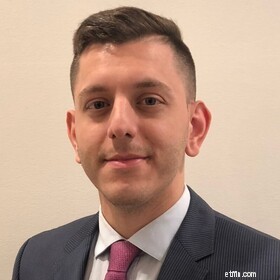
오늘날의 시장과 경제 상황에 대한 투자는 쉽지 않았습니다! 한편으로는 FED와 현재 시행 중인 완화적 통화 정책에 맞서고 싶지 않습니다.
반면에 FED는 수조 달러를 인쇄하고 있으며 달러 가치는 중기적으로 가까운 미래에 반드시 약세를 보일 것입니다. 우리는 또한 현재 경기 침체에 있으며 "실제" 경제가 반등할 기미를 보이지 않고 있습니다.
마찬가지로, 주식 시장은 도취적인 것처럼 보이고, 다른 자산군은 매우 높은 가치를 지니며 실질 이자율은 마이너스입니다. 다양한 변수를 염두에 두면서 투자자로서 무엇을 하시나요?
돈의 기회 비용을 다양화하고 평가하십시오. 인플레이션이 가까운 장래에 누구에게나 주요 관심사이기 때문에 모든 현금을 보유하고 싶지 않을 뿐만 아니라 주식과 같은 고위험 및 고가치 자산에만 머무르고 싶지도 않습니다.
내 권장 사항:자체적으로 비용을 지불하고 장기적으로 성장할 수 있는 좋은 상한율로 부동산에 투자하십시오. 고수익 저축 계좌에 돈을 두지 마십시오. 그렇게 함으로써 예상 인플레이션 기준을 초과하지도 못할 것입니다.
주식 시장에서 승자를 유지하되 암호화폐, 가치 및 배당주(경제적 불확실성의 영향을 크게 받지 않음), 채권 등 다른 자산으로 현금을 확보하고 분산하는 것을 두려워하지 마십시오.

다소 지루해 보일 수 있지만 코로나 이후 세계에 투자하는 가장 좋은 방법은 광범위한 기반의 저비용 패시브 인덱스 펀드인 코로나 이전 세계에 투자하는 가장 좋은 방법과 동일하다고 생각합니다.
대부분의 연구에 따르면 최고의 투자 고문조차도 서비스 비용을 충당하기에 충분한 마진으로 시장을 지속적으로 이길 수 있는 방식으로 장기적으로 미래를 예측할 수 없습니다.
저는 개인적으로 고객이 돈을 벌고 주요 수입원으로 하는 일에 관심을 집중한 다음 큰 소란을 피우지 않고 부를 성장시켜야 한다고 생각합니다.

포스트 코로나19 세계의 투자 환경을 보면 답보다 질문이 더 많은 것 같습니다. 우선 여기 미국에서 연방 준비 제도 이사회는 금리가 향후 5년 동안 엄청나게 낮을 것이라고 밝혔습니다(실제로는 0%).
대공황 이후 저금리 환경은 막대한 투자를 촉발했고 경제에서 가장 큰 타격을 입은 부문인 부동산에 특히 강한 회복세를 보였습니다.
그러나 이번에는 특히 부동산의 경우 주거 공간에서 더 많은 활동을 보고 있습니다. 낮은 이자율은 교외에 더 많은 공간을 확보하기 위해 도시에서 대량 탈출을 주도하는 도시 거주자에게 더 매력적으로 보입니다. 상업용 부동산의 경우 2008-09년과 달리 다국적 기업은 원격 근무자를 늘리고 물리적 사무실 공간을 줄인다고 발표했습니다.
COVID 19는 많은 분석가들이 앞으로 몇 년이 걸릴 것이라고 예측할 정도로 기술(특히:원격 작업 및 원격 회의)의 채택을 가속화했습니다. 이것이 어떻게 우리 시장에 번역되고 침투할 것인지는 여전히 논쟁의 여지가 많은 질문입니다.
현재 비즈니스(이자율) 환경의 패자:상업용 부동산, 에너지 기업, 채권 투자자
승자:누구나 짐작할 수 있습니다.
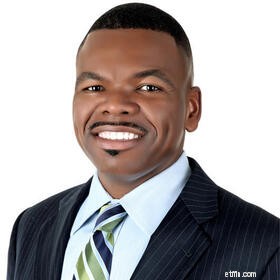
COVID-19 대유행 이후 천문학적 성장을 위해 호황을 누리고 있는 부문을 정확하게 식별하는 것이 중요합니다. 이것은 신성한 예언 능력을 요구하지 않습니다. 과거 데이터는 투자 공간에서 코로나바이러스 지평 너머에 무엇이 있는지에 대한 충분한 시각을 제공할 수 있습니다.
여느 때와 마찬가지로 팬데믹 기간과 이후에 투자할 가장 탄력적인 부문은 기술 틈새 시장입니다. 여기에서 가장 멋진 두 산업은 자동화와 전자 상거래입니다.
우리는 Tesla와 같은 기술 중심 회사가 2020년에 기하급수적인 급등을 경험하는 것을 보았습니다. Tesla의 주가가 2020년에만 500%까지 급등한 것은 놀라운 일이 아닙니다. 줌도 99년 2분기 실적 보고 3,300%의 수익을 올리며 파티를 하고 있습니다!
이러한 산업 외에도 운송은 전염병이 사라지는 즉시 대담한 상승을 보일 것이며 Union Pacific, J.B. Hunt Transport Services와 같은 기업은 부활을 준비하고 있습니다.
운송 틈새 시장에 투자할 가장 매력적인 회사를 볼 때 물류 회사, 항공 화물 회사, 항공사의 일반적인 클러스터를 넘어서 운송 회사의 연비, 부채(장비 구매에 대한 막대한 필요성 고려)와 같은 세부 사항에 초점을 맞춰야 합니다. ), COVID 대응 및 현재 틈새 시장의 경쟁에 얼마나 잘 대처하고 있는지.
저는 개인적으로 자동화를 지향하는 운송 회사를 선호합니다.

3월 이후 주식 시장의 최근 상승폭 대부분은 백신 개발에 관련된 기술 및 일부 의약품에 의해 하락했습니다.
내가 가진 질문은 이제 모든 사람이 필요한 기술 업그레이드를 받았고 상황이 정상화되기 시작하면 이를 축소할 수도 있으므로 자금이 어디로 흘러가는가 하는 것입니다.
올해 최악의 실적을 낸 5개 섹터 중 3개는 유틸리티, 임의 소비재 및 비순환 소비자 부문입니다. 저는 이 3가지 좋은 순풍이 모두 시장이 하락할 경우 위험을 줄이고 상황이 정상화되기 시작하면서 더 강한 섹터가 될 것이라고 믿습니다.
유틸리티 산업은 매우 안정적인 산업이며 꽤 좋은 배당금을 내고 있습니다. 연준이 0에 가까운 금리 정책을 계속함에 따라 채권과 CD는 매우 낮은 금리로 퇴직자와 고령 투자자를 배당금이 좋은 신뢰할 수 있는 주식으로 끌어들이고 여기에 유틸리티가 들어옵니다. 오해하지 마세요. 여기에서 기술 부문에서와 같이 상승세를 볼 수 있지만 포트폴리오를 채우는 데 약간의 안전과 강력한 배당금을 얻을 수 있습니다.
임의 소비재와 비순환형 소비재로 인해 사람들은 일이 시작된 이후로 미루어 왔던 것을 구매하기 시작할 것이라고 믿습니다. 미국 시민을 위한 저축률은 20년이 넘는 기간 동안 가장 높았으며 그 돈은 다시 흐를 것이며 주로 임의 소비재가 될 것이며 비순환적 소비 지출도 증가할 것이라고 믿습니다.
기술 부문에서 중요한 위치에 있었다면 지금이 포트폴리오 재조정을 살펴보고 그 이익의 일부를 당신을 보호해야 하고 아마도 다음 큰 부문이 될 더 큰 타격을 입은 부문으로 옮기기 시작하는 좋은 시간일 것입니다.
어떤 대가를 치르더라도 나는 REITs를 피할 것입니다. 많은 사람들과의 대화에서 그들의 회사는 사무실 공간을 판매하고 임대 공간을 짝지으며 훨씬 더 작은 설치 공간을 차지하는 보다 유연한 공간 설정으로 이전하는 방법을 찾고 있습니다.

The best way to invest in a post-covid world is the same as how you would invest in a pre-covid world. Stay the course and don’t abandon your investment strategy. A portfolio that is well diversified and has proper risk exposure based on your tolerance is built to withstand good and bad markets.
Many investors become tempted to reduce their equity exposure and go to cash or bonds because of the perception of where the economy is headed and the impact it may have on their portfolio.
Luckily, history is on our side when it comes to the years that follow a recession. Of the 15 US recessions that have occurred over the past century, 73% of the time, returns on stocks were positive two years after a recession began.
Deciding to change your investment strategy shouldn’t be driven by trying to guess what the market might do, particularly during a recession. Succumbing to this strategy could potentially derail your long term financial goals.
By staying disciplined and revisiting your investment strategy periodically, rather than only during periods of high market volatility, you give yourself the opportunity to have a better investment experience.

The technology sector is on fire right now because more and more people are engaging in e-commerce as a way to order products and services while staying at home, so a juggernaut like Shopify might be a good investment, or Amazon, Google etc. That said, apart from choosing specific companies, I still recommend diversity no matter what kind of instrument or company people choose to invest in.
While emerging technology is always attractive in the companies behind work from home products and services like Zoom are taking off in terms of share price, it’s still important to balance out the overwhelming impact coronavirus is likely to have on the economy going forward. That means balancing your portfolio appropriately to account for hedging against the market and investing in things like precious metals or even digital currency if you believe in it.
As always, you still want to keep some of your money and blue-chip stocks like Walmart or index funds like the S&P 500, and if you have the money, perhaps a real estate investment might do you well. People always need somewhere to live regardless of the state of the economy.
As a last bit of advice. Keep in mind that the stock market and nearly every other form of investment has been skyrocketing since the coronavirus pandemic grabbed hold of the whole world in mid-March. As Warren Buffett says, ‘be fearful when the markets are greedy, and greedy when the markets are fearful’.

A post-Covid world is one of financial repression where central banks favor borrowers over savers by keeping short-term interest rates low and doing what they can to keep long-term interest rates low.
In that environment, cash flow yields and expected investment returns are low. Savers will have to save more. They will have to take more risk by keeping a higher allocation to stocks in order to benefit from earning growth.
Investors need to focus on total return, not just income. There remain some attractive income strategies such as preferred stocks and dividend-paying common stocks.

Although property investments have been fluctuating for many years due to various declines, the general trend suggested that capital injections into real estate were on the rise. We do not see any reasons why this trend should reverse. Property still generates good relative returns compared to other asset classes.
Let’s look at the most resilient vehicle for investing in real estate – REIT. These trusts acquire, build, and manage properties through pooled investments. Investors buy REIT stock and become co-owners of a property.
COVID-19 impacted the REIT segment. For instance, real estate investment trusts in the USA went down by 8.2% on average in mid-May due to lower rent collection in all sectors. In April, REITs collected only 71.4% of expected revenue from shopping centres and retail spaces.
Now that lockdown is being gradually lifted, the largest market players in the USA and UK are re-emerging (e.g. Simon Property, Segro Plc). Some REITs generate steady revenue even in a crisis and recover faster than others. During the pandemic, these are the trusts focusing on data centres, storage spaces, and healthcare facilities.
REITs are resilient to market fluctuations and interest rate changes, as their loan-to-value ratio is sustained at no more than 30–40%. Following the 2008–2009 recession, REITs have been reducing financial leverage and increasing owned capital. When the recession set in, REITs were using 60–70% of borrowed funds to finance their activities.
During the 2020 global crisis, REITs are outperforming shares.
In early June, REIT indices rose almost by 9%, whereas S&P 500 and Dow Jones Industrial went up by 8.3%. REIT indices are expected to trend steadily upward faster than others, as was the case during the 2008 financial crisis.
REITs can bring higher returns in a crisis because they are tied to the real estate cycle, which lasts about 18 years. Shares are impacted more by the ups and downs of the economy – underperforming during recessions while real estate investments generate steady returns.
A REIT is a very good independent piece of an investment portfolio after the crisis. For the last twelve years, REITs showed the least diminishing returns compared to other liquid financial instruments, as well as resilience to interest rate changes and inflation, fast successful recovery in the post-crisis periods, and steady dividend payouts.

Based on my own research and what I’ve been noticing with my existing investments, here is my opinion on the best way to invest.
I’m keeping a lot of my net worth in appreciating assets with little volatility such as real estate, gold / silver, and well established blue chip stocks or ETF’s. I’m also keeping at least 25% of my net worth in cash so I have a rainy day fund.
The key to this strategy is that I have enough cash on hand for immediate purchases and everyday life expenses. But, at the same time, enough invested in assets like stocks or real estate which will appreciate to protect myself from inflation.
The FED recently released more dollars into the money supply and has spoken about averaging a target for inflation at around 2% going forward.
No one can tell for sure how this will all play out. But, I’m sticking to a strategy I know worked through the last great recession of 2008 based on my own experience. I’m also avoiding tech stocks right now which are built upon too much hype and not the fundamentals.

I think index funds are a great way to invest money during the pandemic. We don’t know what the world will look like after the pandemic.
As things stand today, we have seen the travel industry get hit hard by the pandemic. No one wants to get on an airplane and business travelers aren’t filling hotels. Some people are speculating that business travelers will complete all of their meetings over Zoom in the future. Others think that business travel may bounce back sharply in a post-COVID world. Today both outcomes seem equally likely.
On the other hand, the pandemic has helped some companies soar to new heights. But it’s possible that they’ll fall back to earth once everyone has returned to their normal routines. Because we don’t know what the future will look like, index funds are a great way to grow your portfolio during the pandemic.
By investing in index funds, you are betting that after the pandemic the economy will grow. This seems like a safe bet. When things return to normal, people will spend money, there will be innovation, and the economy will grow. And as the economies grow and businesses profit, your index funds will grow too.

In a post-COVID 19 world, I would recommend continuing to diversify your investment portfolio to different stocks as well as over time. While I would usually recommend investing in dividend paying stocks, and reinvesting the returns.
Post-COVID 19 requires investors to be extra cautious when investing in stock with the aim of dividend cashflows. According to Janusn Henderson asset management group, 27% of companies have cut dividends, half of which suspended dividends all together as a result of COVID 19.
There are several industries that are currently thriving thanks to COVID 19, while other are suffering serious losses. I would avoid industries that are deemed to struggle in the coming months or even years due to the pandemic. These include tourism, brick and mortar, amongst others. Instead focus on industries that are likely to benefit from the impact of COVID 19, such as health tech and communications tech.
As always, keep the portfolio diversified and avoid putting all eggs in one basket. Relatively cheap financial instruments such as ETFs are useful to gain a broad diversification. If we go into a bear market, hold your positions. Use the opportunity to buy rather than sell.

My main takeaway from all of the effects COVID has had on the market is a re-emphasis on long-term investing. We’ve seen dramatic growth in the stock market over the last few months, which has been an almost polar opposite trend of the world sentiment. This just proves that no matter how skilled you are as an investor, no one can truly time the market.
In addition to that, the last few months have shown that markets and price movements can be counterintuitive to the traditional metrics many use to measure the health or attractiveness of a particular investment. Index funds and other passive investing options continue to prove to be attractive options in any conditions.
On the housing front, real estate has largely shown to be relatively resilient even through the pandemic. Although partially driven by historically low-interest rates, housing prices have largely remained flat. This is not necessarily reflective of every geographic area in the United States, but the initial fear of 2008-type effects happening were blown out of proportion in hindsight.
There could still be a situation where we just aren’t feeling the effects that COVID has had on the nation and the globe due to the recent expiration of many economic impact stimulus policies, but only time will tell.

Everyone keeps asking what the world will look like post-COVID 19 and while that is an important question, a question that is perhaps more important is how is the world the same? Investing really hasn’t changed much because the basic principles of investing are meant to handle situations as extreme as COVID-19.
Good investing has three major principles, those are:diversify and minimize risk, reduce fees, and invest for the long term.
1. Diversify and minimize risk are hugely important principles that everyone seems to forget whenever there is a major crash. The “don’t put all of your eggs in one basket” principle is good because you minimize the risk of losing all of your money. If you have invested broadly across multiple industries within and without the stock market the chances of your losing all of your money are basically zero.
If you do lose all of your money because there is a situation that is so bad losing all of your money will be the least of your concerns (for example, a meteorite hits the planets and a mass extinction occurs–sorry to be a downer, but that is the truth).
2. Reduce fees is another important principle because regardless of how well your investment is doing (on up years and down years) the fees still get taken out every month or year. Therefore, the higher your investment fees are (usually called an advisory fee or a management fee) the less money you will have in your account regardless which is bad for long term growth.
3. Invest for the long term is the last principle. If you are investing for the long term a major dip is NOT a time to be concerned but a time to stay calm. As the market goes down you have not technically lost money UNTIL you pull that money out of the market. Barring an end of the world situation, the market WILL come back. So just wait it out. Even better, invest in the bottom and ride it up to the top. Investing should not be looked at in the short term.
The people that lost their shirts in the COVID dip are the people that were heavily invested in one sector that lost considerably (not diversified), had a high-fee actively managed account (didn’t reduce fees), and pulled their money out of the market “before I lose any more money” which turned their loss on paper into actual loses that are all but impossible to recover from (didn’t invest for the long term).
So what does that lead to on a high level? Post-COVID 19 just keep investing in a diversified, low fee investment for the long term. I would recommend index funds, but mutual funds and REITs can also be good to mix into your investment. It just depends on your goals. But keep investing!
On an individual level though, many things may have changed. How did you react emotionally when your investments dropped dramatically? How did you feel as the stable growth of more than a decade was wiped out? If you were freaking out, then it might be a good idea to change your investment strategy after things calm down.
Try something with less risk like bonds, or keep more cash on hand in case of emergencies. Make sure that you are ready and comfortable just in case something else this widespread and catastrophic happens again. Even if it doesn’t it will help you sleep at night and will strengthen your overall investment position.

We’re big believers that pretty much any time is a good time to get into the market, as long as your intention is to stay invested long-term. And that the same advice applies today as it did yesterday and as it will tomorrow.
It’s more important to consider your own age and investing goals rather than the current state of affairs. No one can predict the future, so investment advice is all based on historic stock market performance.. The broad stock market has a long history of increasing in price and paying dividends over the long run. Whenever you wait to invest, you’re likely just consigning yourself to pay a higher price for those same shares later.
We started investing when we were in our early 20s, almost a decade ago now, so our portfolio tilts a little more toward high-risk, high-reward asset classes, like equities, instead of safer bets like bonds. We also have a longer time horizon until we draw down our portfolio, which allows us to weather the volatility of the stock market without selling.
A lot of new investors have a tendency to gravitate toward exotic strategies like options trading, forex trading, and cryptocurrency speculation. The lesson most experienced investors learn over time is that a simple, passive index fund investing strategy pays off better in the long run, and it takes less energy and thought to maintain as well.

Invest after you save at least 6-9 months’ worth of expenses.
Investors are desperate for yield and may be more risk-seeking, susceptible to high-cost schemes, “exclusive” strategies, and financial services salespeople ready to take advantage. Your best bet is a fiduciary advisor who is not paid on commissions or confusing fee structures.
Especially now, stick with low-cost index funds and etfs.
ESG standards remain unreliable and greenwashing is rampant; however, legitimate ESG funds have been doing extremely well and are a great option for investors post-covid.
Discount trading platforms, like robinhood.com, are popular these days. Many reasons for this, including the lack of sports betting due to COVID. There is also fear of missing out by seeing so many success stories on social media from those who have killed it buying stocks distressed by COVID. Day-trading is a get-rich-quick scheme, might as well go to Vegas. it’s the wrong way to invest and a losing strategy over the long-term.
Considering the political and economic uncertainty, the best bet post COVID is to rely on a globally diversified portfolio of low-cost index funds. If the US stock market struggles, owning stocks in the developed countries outside the US and the emerging markets allows capture of returns wherever they may occur next.
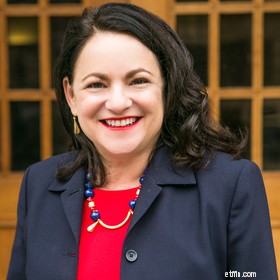
The best way to invest in a post-COVID 19 world is philanthropy. As Melinda Gates says, “Our humanity is the one thing that we all have in common,” philanthropy is the love of humankind.
As the US Trust Study on High Net Worth clients and Advisors indicate HNW clients would like advisors to bring up philanthropy discussions early and often in the relationship.
Benefits for the client include solving personal, financial, and legacy goals. This is It the comprehensive plan includes a client’s personal, financial, and legacy objectives.
According to Micheal Norton, associate business professor at Harvard, “Money can buy you happiness if you stop spending it on yourself and spend it on others. "

Unfortunately, due to COVID, I am not flying as much as previous so my income has drastically dropped. I am on a sabbatical until the end of 2020 and am using this to spend quality time with family and friends, as well as learn, read, and engage in the financial independence and investing community.
What are some things that have changed? Well firstly I have massively liquidated my physical possessions and slashed my living expenses – I have been selling gadgets, toys and things like gym equipment, which I have put into increasing my emergency fund cash buffer by over double, as well as used this extra cash and savings to try and pick up extra shares of companies whilst the price is depressed.
When it comes to COVID-19 and investing, my investing style has not changed a great deal. I continue to dollar cost average into good quality, profitable companies through a combination of total market index tracking Exchange Traded Funds (ETFs), as well as good quality, old school, low management fee Listed Invested Companies (LICs). This includes Australian domestic, US domestic, and global markets.
I have also been transitioning from a higher proportion of LICs which begun trading at a significant premium to net asset value (8% or so) and selling them and buying ETFs which always trade at fair value.
I have further begun investing in my own business and websites, undertaking web development and webmaster training courses to diversify my income stream further and not rely on my sole income as a pilot. With this, I have been able to invest only a few thousand dollars but now am in a position where I own a portfolio of sites that are generating around $500 per month.
On advice from an accountant, I also crystallized losses in shares by selling the ones I did not particularly want to hold long term (for example index funds with higher management costs than I would prefer) and then instantly rolled this cashback into investments in a similar asset class but with lower fees. This allows me to carry forward capital losses to offset future capital gains.

The best thing about the term “post-COVID-19 world” is 20-20 vision. The fly-in-the-ointment centers on one question- “Are we in post-COVID or the middle of it?”
In my view, we can learn from both these positions. To think “post-pandemic” or “midst-pandemic” is not helpful one way or another.
We are in a new norm that’s likely to last for a long time.
Moreover, it’s changed our collective mindset to one pillared in wariness, caution, and not taking anything for granted. That won’t alter for many years.
As far as investments go, the issue is not all that complicated.
Invest in businesses on the right side of the “virus divide”.
Distance yourself from those suffering (and likely to continue that way).
(1) above includes mainstream online retailers, delivery businesses, technology (an evergreen), health, home gym equipment, hobbies, streaming entertainment, supermarkets, pharmacies, home entertainment, etc. Netflix, Peloton, Amazon, iPhone, Dominos, FedEx, Walgreens, and Walmart are good examples.
Look out for groundbreaking technologies, vaccine-developers, and health-centric enterprises that are mitigating the COVID-19 ills.
The wrong side of COVID-19 includes:
It’s mostly common sense. If the “wrong industries” flip back, it won’t be overnight. Expect a very gradual recovery. You’ll have time to get back in. in most cases, look out for moves to reinvent themselves in compelling ways.

Two main sectors I’d invest in the post-COVID19 world are the following:
Technology:Digitalization is a non-stop process. We live in the world of computers, artificial intelligence, and digital reality. We all can feel its irreplaceable presence especially during COVID19 and our dependence on it in quarantine. Online education, the entertainment sector, automated real-time processes have undergone rapid growth. Startups are where I look to have my next investment in.
Socially Responsible Investment (SRI):Socially responsible investing is a good way to pursue your goals and it’s getting HUGE!
One thing COVID19 came to teach us is solidarity. I have no doubt in my mind that 2020 will go down as a “social activism year.” With every challenge, people are rising to the occasion and opening their eyes to what they can do to create a change they want to see.
SRI’s popularity is already growing like crazy world-wide
There’s no significant downside compared to index funds (the gold standard of stock market investing)
Millennials and Gen Z – are pushing the trend upwards
Fund managers back SRIs for risk-aversion purposes and are planning for a significant increase in demand
It’s good to invest in causes you care about.
While there are more ways to invest in the post COVID19 world, as an investment and finance expert I believe these two are the biggest on the international stage at the moment.

Your first option should be to start an emergency fund if you do not already have one. We do not know how badly this is going to affect jobs, the economy, or our lives, and for how long. Having a savings account that can keep you above water for 3 to 6 months should be priority number one.
If you already have a dependable emergency fund, investing in shares is the best thing you can do right now.
Taking out money right now just because you think its gonna fall further may leave you with a loss but investing is a time game and the market always jumps back. If your long-term investment goals have not changed and you do not NEED money right now, stay put and invest further.
You are going to get to invest at rock bottom prices and reap the rewards later.
The market may seem a bit of a mess right now but this is not the market’s first rodeo. It will bounce back. Unless you are 62 and nearing retirement, investing right now is the best thing to do for your future self. You will make crazy profits when the COVID-19 craziness dies down.
Another option would be to pay off credit card debt, your mortgage loan, or your student loan debt. This would make more sense than investing if you have a lot of debt to pay off and a lot of interest making it worse. It could help you get back on your feet and take a step closer to financial freedom.
Especially now, when institutions may tighten the credit score requirements for people who are taking out loans (given the situation), paying off debt and bettering your score could be imperative to your future finances.

Lifestyle, businesses, routines, and everything else has been affected by COVID. It has brought changes to the way of thinking, priorities, and investment approaches.
All these factors will continue to be influenced by COVID unless it is over. The recovery will be highly different in different parts of the world because the pandemic has struck everywhere with a different intensity.
So, there cannot be just one general rule for investment. It will vary depending on your location. A ‘W’ shaped recovery is predicted, which means a series of rising and declining in the financial industry. The best way to invest in these times would be to have a defensive investment approach.
Investing in quality companies will be the trend as they will continue to thrive and quickly make it through the struggling phase. You can invest in areas which are benefitting from the current crisis.
Two main sectors thriving in these conditions are digitalization and the healthcare sector. 5G will further help the growth of the tech sector, and will also play a vital role in the advancements of the healthcare sector.

It’s clear, COVID 19 changed the world in many ways. But, to be honest, it hasn’t changed my investment strategy.
My favourite strategy is investing through index funds, easily diversifying. When investing in index funds, with just one operation you diversify in stocks, geographically and temporarily, and that’s why it’s my favourite strategy.
I don’t think COVID has changed that. It’s true, some companies will suffer, and it’s likely that the economy will resent, but I invest long term, so I’ll just keep using the same approach.
If the intention is not investing long term, and instead someone wants to invest short and mid term, Covid definitely changed the situation.
A lot of sectors and companies will suffer in the near future. Travel and tourism companies are a clear example. Instead, others like internet companies, could thrive.
Another option could be real estate, since it’s likely that we see a significant price drop, due to the coming crisis
There is just one sure thing. The most important thing is investing, because it’s a basic in personal finance, and covid hasn’t changed that.
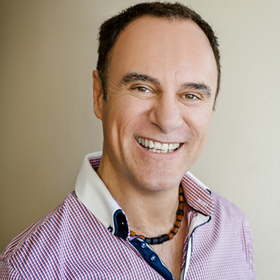
Investing post-COVID19 is simple. Avoid magic promises of what is “coming soon” as a COVID19 vaccine may be years away, just like a profit for Tesla Motors. The following tips will assist you to invest simply, safely and securely for the longer-term
1. Create a cashflow plan (millionaires don’t have a “budget”, they have a “Plan”). This can be on paper or a spreadsheet, whatever is easiest for you
2. Track every single expense, no matter how small, for a minimum of 30 days, ideally 90 days. All successful millionaires do this for themselves and their businesses. A business or an individual who does not track their money will not be successful, it’s that simple.
3. Identify key areas where you can cut expenditure:eg. 10% less entertainment, buying in bulk, shopping around for better deals on insurance, utilities, and so on. Aim to save 5-10% on each expense (more if possible)
4. Once you have managed to identify savings, start a new account where you can set this aside every week or month. Pay yourself first before you pay the expenses. Aim for at least 5% to start with, 10% up to 20% is a sweet spot.
5. Use an online search engine to identify which publicly listed companies benefit from your unique specific spending pattern (yes, we refer back to #1, the “Cashflow Plan”).
6. Open an online trading account and invest in the companies who make money every time you spend. For example, if you pay a mortgage to a bank, you can invest in the bank by buying some of their stock. Ditto for groceries, fuel, and so on.
(Sometimes there may not be an easily identifiable parent company into which you can invest, eg. if you purchase electronic appliances direct from China, you probably cannot buy stock in that company. In this instance, you can use your detective skills to ascertain where the Chinese factory spends the money after you give it to them. For example, they may have to buy raw materials for manufacturing, such as copper, silver, gold, or plastic, and you can invest in the mining and industrial companies, not the manufacturers.)
7. Rinse and repeat. Soon, you will save up 10%-20% and start investing in publically listed companies with which you are familiar because you spend your money there. Over time, your #1 cash flow plan will change, so change your investments.
For example, after Covid19, you probably traveled less (sell airlines, sell Hertz), and used video-conferencing more (buy Zoom, Microsoft, or competitors). Your spending patterns will change again and again, possibly annually as you go through life, so be sure to keep your investments in line with your cash flow plan and be sure to “invest where you spend”.
This method will not make you a millionaire overnight (just like you don’t lose 20 pounds or become Mr /Mrs Universe overnight), but it will happen if you stick to the plan.
The great benefit is, aside from becoming wealthier, you don’t need to watch the financial news or keep abreast of any technical jargon. All you need to do is watch where you are sending money every month, continue to “invest where you spend” and change your investments anytime your spending changes.

Investing doesn’t always have to be in the stock market. Sometimes, you need to invest in yourself and your personal financial assets to be able to invest more in the future.
Oftentimes it’s an excellent idea to invest in your debt before spending a lot of money elsewhere. By paying off your debt ASAP, you’ll free up more money in the long run to spend on other opportunities, and you’ll save money on interest and other possible charges.
The higher the interest rate on an account, the more money you spend on that debt. Consider putting money toward your higher-interest accounts first to lower the amount of money you’re spending over time.
It’s difficult to invest as much as you want in other areas, such as a 401K if you have high monthly payments on a loan or credit card bill. By paying off your monthly credit card statement, and eliminating other debt early, you allow yourself to put more into your 401K and other investment accounts.

Don’t put all of your eggs in one basket. We have seen from this pandemic just how quickly the world can change. Those who were heavily invested heavily in airlines, hotels, energy, financials, or other industries impacted by the coronavirus have seen the value of their portfolio drop significantly.
Use some of the many low cost, diversified index funds available to build a nest egg that will be able to weather not only this crisis, but future ones as well. Total Stock Market index funds, whether from Vanguard, Schwab, Fidelity, or anyone else have costs (expense ratios) below 0.10%, and invest in thousands of companies. Likewise, Total Bond Funds invest in a variety of bonds from the U.S Government and highly rated companies with a wide variety of maturities. This will provide you protection from volatility in the stock market, interest rates, and inflation in the future.
Once you have found those high-quality investments, focus on what you can control and don’t worry about the move in the stock market every day. Look at your savings rate, can you cut expenses to save money? Can you earn extra income to save more? Being able to maximize Roth IRA savings, or 401(k) contributions will have a much more significant impact than constantly trying to pick better performing investments.

Whenever giving investment advice, the most crucial element is the perspective of the person seeking advice. For a newer investor, there is no better option than just investing in an indexed ETF that tracks the S&P500.
Experienced and self-directed investors should continue to ensure they have a diversified portfolio that is not over-allocated in any particular sector.
Technology stocks will probably be the best growth stocks for the long haul, but at today’s valuations, it is highly likely a rotation from tech to value will occur. That is why stocks in the following sectors are worth a look to invest in:banks, insurance, consumer defensive stocks, utilities, and telecommunication services. These stocks will benefit from a recovering economy, and investors can collect a dividend until that time.
Another change that investors need to factor in their investment decisions more than ever are the leadership team, regulators, government agencies, social and environmental impact. Investors used to only care about a stock’s profitability and if it hit the estimated numbers.
Companies are finding themselves in the spotlight, as we have recently witnessed from doing business in China or not having a diverse enough board. Of course, scandals and financial crime are never good, but as we are seeing with the banks right now that those reports are now reigniting calls to break up the big bands, expanding an investor’s regulator risk. Investors need to ensure they do broad research about a company outside of its financials when investing in the post COVID-19 world. That will be the “new normal” for investing.
Finally, we will probably continue to see investors using stable dividend companies as a bond alternative, which will keep equity valuations on the rise until inflation beings to creep back up.

You’ll find most financial advice falls into the category of set it and forget it. Those who don’t react to the market and hold their stocks are better off in the long-run.
The same applies to those who invest in dividend stocks, but comes with the added bonus of seeing dividends pour into their account on a regular basis.
That little extra money coming in, on a consistent basis, regardless of market swings, helps give investors the peace of mind to stay in the market regardless of storms. I expect we’ll see more dividend investors post-COVID who appreciate that extra comfort moving forward.
Thank you so much to all the experts that have contributed to this expert roundup! If you have any questions let us know in the comments below and someone from our team will reply as soon as possible.
If you found out at least one useful thing in this post, then please share this post with your friends and followers on social media. Thank you for reading!